Premium Only Content
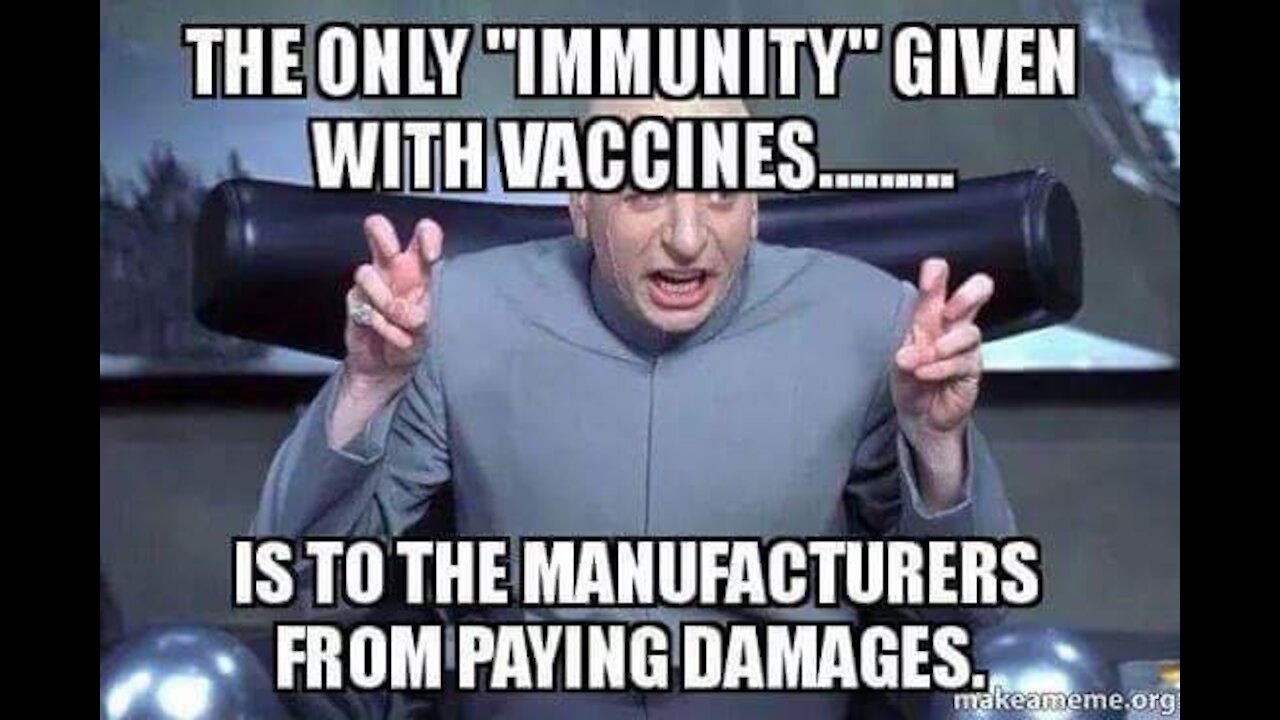
Johns Hopkins professor claims US will reach herd immunity by APRIL 77% reduction in Covid infection
#Professor #JohnsHopkins #Corona #Herd #Immunity #Vaccine
Johns Hopkins professor Dr Marty Makary has made a bold claim: 'We'll have herd immunity by April'.
Dr Makary wrote in a Wall Street Journal editorial that he estimates that the U.S. will have herd immunity by then, driven by the high, but underestimated, number of people who have been infected already and vaccination.
'Some medical experts privately agreed with my prediction that there may be very little Covid-19 by April but suggested that I not to talk publicly about herd immunity because people might become complacent and fail to take precautions or might decline the vaccine,' said Dr Makary in his editorial, published Friday.
'But scientists shouldn’t try to manipulate the public by hiding the truth.'
Dr Makary noted that new daily infections have declined 77 percent in the past six weeks (a DailyMail.com analysis of Johns Hopkins data shows a 72 percent decline), equating this decrease to a 'miracle pill.'
President Joe Biden also said he hopes Americans can 'return to normalcy' by the end of this year during a visit to a Pfizer vaccine manufacturing facility in Michigan on Friday.
The US saw 74,676 new cases of coronavirus on Friday, compared to six weeks ago, when the seven-day rolling average of new daily infections was 247,164. Infections have been declining steadily for the past five weeks, but top health officials including Dr Anthony Fauci and CDC director Dr Rochelle Walensky have warned that the progress is tenuous.
America is still seeing more new infections a day than it did at the height of the summer peak, Dr Walensky reiterated on Friday - and even the current downward trajectory is threatened by the spread of new variants like the UK's, which has already caused more than 1,600 infections in 43 states.
Dr Makary's rosy prediction largely dismisses the presence of variants, noting that cases are declining in the UK, where the B117 variant quickly became dominant, triggering massive case surges and lockdowns there.
He also claims that herd immunity in the Brazilian city of Manaus, where 76 percent of people had already been infected resulted in a 'slowing of the infection.' But the Lancet report that he drew those statistics from documented the 'resurgence of COVID-19 despite high' proportions of the population who had previously infected.
In the US, the CDC predicts that the B117 variant will become dominant by March. Cases are already doubling about every 10 days, according to a recent Scripps Research Institute study - and experts are concerned that the 1.58 million doses of vaccine being given a day won't enough to the more infectious variants now spreading in the U.S.
Inevitably, the US and every other nation comes a little closer to herd immunity with every day and every additional case of COVID-19, and that does reduce the number of people vulnerable to infection - but the nation is likely still a long way off from reaching vaccination or prior infection for 70 percent of the population.
So far, just 12.6 percent of the population has had one or more dose of coronavirus vaccine, and about 1.6 million doses are being given a day. At that rate, Bloomberg's vaccination calculator estimates that 70 percent of the US won't be inoculated until about New Year's Day, 2022.
Some of that gap, however will be made up by the number of Americans who acquire immunity by surviving COVID-19.
As of Friday evening, 27.9 million cases of COVID-19 have been confirmed, according to Johns Hopkins University data.
It's widely agreed that that figure is an underestimate. The CDC estimates that some 83.1 million Americans have had the virus.
With a population of 331 million, that estimate would suggest that a quarter of the US population has been infected and immunity to COVD-19 (although it's still not clear how long that protection will last, most studies suggest it will provide three to eight months of immunity, at least).
Combined with the 12.6 percent of the US that's been infected, that would bring the total share of Americans with COVID-19 immunity to 37.6 percent. Even assuming both the CDC's estimate of cases and the vaccination rate are underestimates, the nation is still a long way off from herd immunity.
If both vaccinations and infections both keep up at the current rates, it's possible that the combination could push the number of people with some immunity from one or the other past 300,000 - but the declining case rates will hamper that progress, and variants - especially those that arrived to the US from Brazil and South Africa and can evade antibodies - could weaken protection if they take hold.
But Dr Makary argues that the number of Americans who have already had coronavirus and are now immune or, at least, less at-risk of the infection, is discounted in other public health experts' predictions of when the US could reach herd immunity.
-
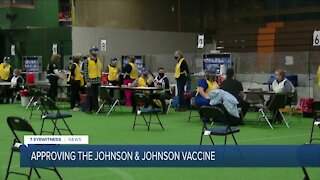 3:04
3:04
WKBW
4 years agoWhen will New York reach herd immunity for COVID-19?
286 -
 2:19
2:19
WKBW
4 years agoWhen will New York reach herd immunity for COVID-19?
80 -
 2:52
2:52
WMAR
4 years agoJohns Hopkins update COVID vaccine timeline
2.97K4 -
 2:25
2:25
WMAR
5 years agoJohns Hopkins professor warns about traveling
4851 -
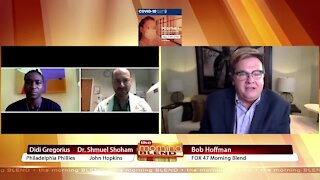 2:59
2:59
WSYM
4 years agoJohns Hopkins COVID-19 Plasma Trials
64 -
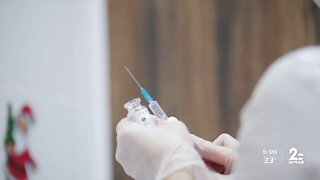 2:38
2:38
WMAR
4 years agoJohns Hopkins doctor gets COVID-19 vaccine
1.4K7 -
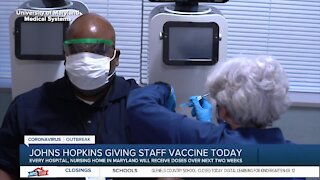 2:28
2:28
WMAR
4 years agoJohns Hopkins giving staff vaccine today
55 -
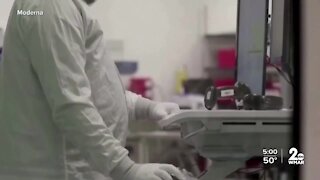 2:39
2:39
WMAR
4 years agoJohns Hopkins expert on vaccine latest
631 -
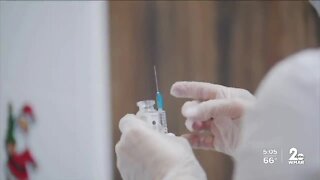 1:36
1:36
WMAR
4 years agoJohns Hopkins expert on vaccine update
336 -
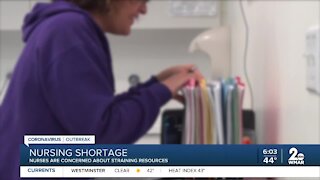 1:51
1:51
WMAR
4 years agoNurse shortage at Johns Hopkins Hospital
84